Artificial intelligence (AI) is revolutionizing various sectors, and agriculture is no exception. By using data-driven insights and automation, AI is helping farmers address some of the most pressing challenges in agriculture, from climate change and resource scarcity to increasing food demand. Through modern farming techniques like precision agriculture, crop monitoring, and automated machinery, AI supports sustainable farming practices that maximize productivity while minimizing environmental impact.
This article explores how AI is shaping sustainable agriculture and highlights key AI-driven techniques that are transforming the future of farming.
The Role of AI in Sustainable Agriculture
Addressing Climate Challenges in Agriculture
Climate change poses significant risks to agriculture, with unpredictable weather patterns, soil degradation, and water scarcity impacting crop production. AI technology provides solutions that allow farmers to adapt to these changes by analyzing weather data, soil health, and crop growth in real time. With AI-driven insights, farmers can make informed decisions that conserve resources and reduce environmental impact.
By integrating AI with sustainable practices, farmers are better equipped to manage climate challenges and ensure consistent crop yields.
To learn how technology is transforming agriculture, check out this article on The Role of AI in Sustainable FarmingPractices from Amini. It explores how AI is helping farmers reduce environmental impact and promote conservation through innovative practices.
Improving Resource Efficiency with Precision Agriculture
Precision agriculture uses AI to monitor and manage crops at a granular level, optimizing inputs such as water, fertilizers, and pesticides. With the help of machine learning algorithms, farmers can determine exactly where and when to apply resources, avoiding waste and enhancing crop health. This data-driven approach not only increases crop yields but also conserves resources, supporting long-term sustainability.
AI-powered precision agriculture enables farmers to be more resource-efficient, reducing costs and environmental impact.
Reducing Environmental Impact
Traditional farming practices often rely on heavy chemical use, which can harm soil and water quality. AI-driven technology allows for more targeted and minimal use of chemicals, such as pesticides and fertilizers. By precisely applying treatments only where needed, AI reduces chemical runoff and supports healthier ecosystems.
This shift to eco-conscious farming is essential for protecting biodiversity and promoting sustainable land use.
AI-Driven Techniques Transforming Modern Farming
1. Crop Monitoring with Drones and Satellites
AI-powered drones and satellites are used to monitor crop health, growth, and soil conditions. Equipped with sensors and imaging technology, these devices capture high-resolution images and data, which AI algorithms analyze to detect issues like nutrient deficiencies, pest infestations, and disease. Early detection allows farmers to address problems quickly, reducing crop loss and minimizing chemical use.
By monitoring crops from above, farmers can maintain healthier fields and improve overall productivity.
For insights into how drones and satellites are used in modern agriculture, read this comparison of Drones vs. Satellitesfrom EOS. This article breaks down the advantages and limitations of each technology, helping you understand their roles in monitoring and improving crop management.
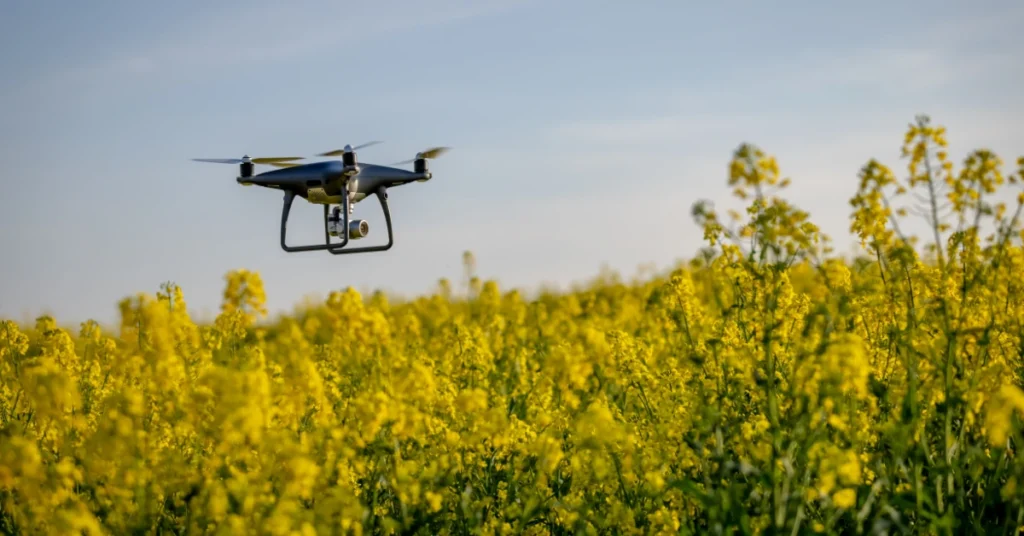
2. Soil and Water Management Sensors
AI-driven soil sensors provide real-time data on moisture levels, nutrient content, and pH, enabling precise soil and water management. By analyzing sensor data, AI systems make recommendations for irrigation schedules and fertilization, helping farmers optimize water and nutrient use.
This technology conserves water and prevents nutrient runoff, promoting sustainable soil health and reducing resource waste.
3. Autonomous Farming Equipment
Autonomous tractors, planters, and harvesters are equipped with AI technology that allows them to operate with minimal human intervention. Using GPS and advanced algorithms, these machines navigate fields efficiently, reducing fuel consumption and labor costs. They can plant, water, and harvest crops with precision, ensuring minimal soil disruption and conserving energy.
Autonomous machinery supports efficient, large-scale farming, making sustainable agriculture practices more accessible.
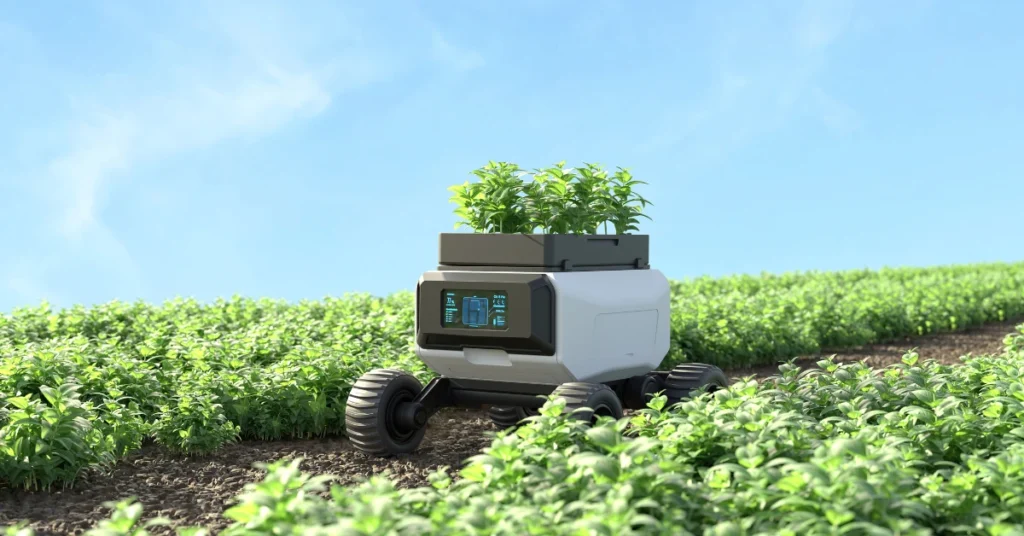
The Benefits of AI in Sustainable Farming
Increased Productivity and Yield
AI enables farmers to increase productivity by providing data-driven insights for planting, watering, and harvesting schedules. By optimizing these processes, farmers can maximize crop yields and reduce losses. AI also helps identify trends in crop performance, enabling better planning for future growing seasons.
This boost in productivity supports food security while promoting sustainable practices.
Enhanced Climate Resilience
AI’s predictive capabilities help farmers adapt to changing climate conditions. By analyzing historical weather data and climate models, AI systems can provide forecasts that guide planting and harvesting decisions. This proactive approach enables farmers to minimize the impact of extreme weather, protecting crops and maintaining steady production.
Climate resilience is essential for sustainable agriculture, helping farmers withstand the challenges of a warming planet.
Reduced Chemical Usage
One of the primary benefits of AI in agriculture is the reduction of chemical inputs, such as fertilizers and pesticides. By precisely applying treatments only when necessary, AI minimizes the use of harmful chemicals, reducing pollution and protecting soil health. This targeted approach also prevents pesticide resistance, promoting long-term sustainability.
Lower chemical usage contributes to a healthier environment and supports biodiversity in agricultural ecosystems.
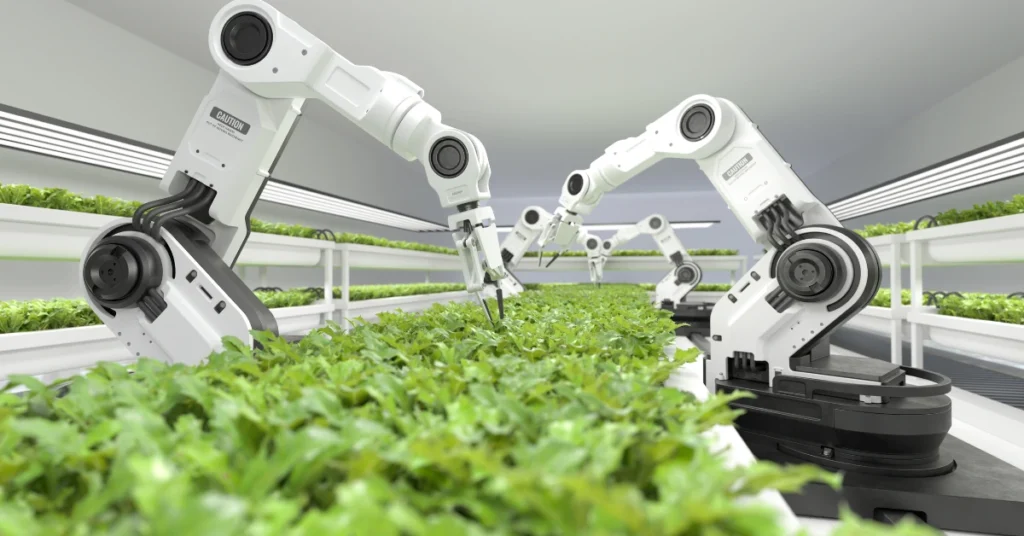
Challenges and Considerations in AI-Driven Farming
Data Privacy and Security
As AI collects vast amounts of data from farms, data privacy and security are important considerations. Farmers must ensure that data is protected and used responsibly, with clear agreements on data sharing and ownership. Implementing cybersecurity measures can help protect sensitive information and build trust in AI technology.
Responsible data management practices are essential for widespread adoption of AI in agriculture.
Accessibility for Small-Scale Farmers
AI technology can be costly, making it less accessible for small-scale farmers who may benefit most from sustainable practices. Ensuring that AI tools are affordable and scalable is key to inclusive, sustainable agriculture. Partnerships, government subsidies, and grants can help small farms access AI-driven solutions.
Supporting small-scale farmers in adopting AI is vital for achieving sustainability across all levels of agriculture.
Balancing AI’s Environmental Impact
While AI promotes sustainability, the hardware required (e.g., sensors, servers) has its own environmental impact. Developing energy-efficient AI systems and using renewable energy in data centers can help offset this footprint. As AI becomes more widespread in agriculture, balancing its benefits with its environmental costs will be essential.
Minimizing AI’s environmental impact ensures that its role in sustainable agriculture is genuinely beneficial.
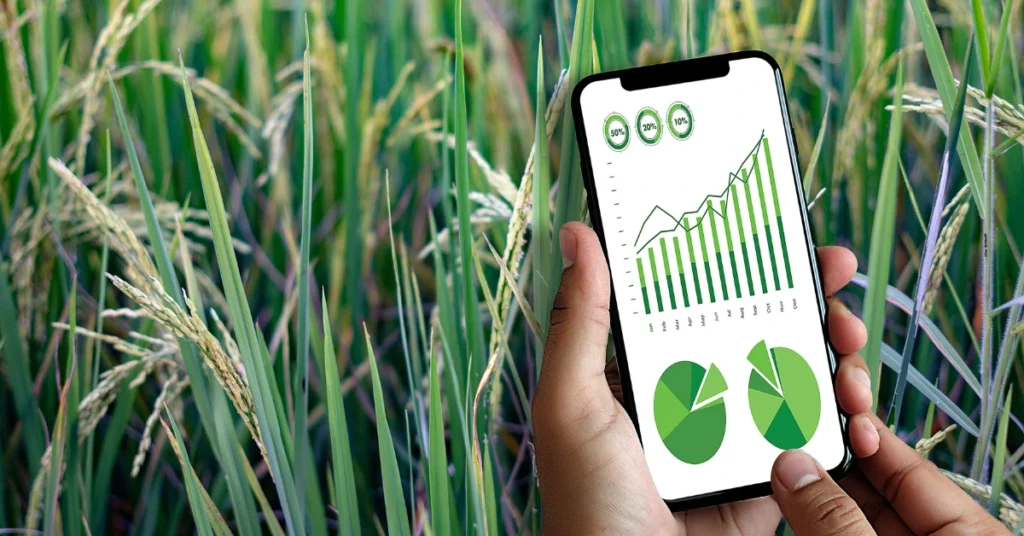
The Future of AI in Sustainable Agriculture
Personalized Farming with AI Insights
As AI technology advances, it will allow for even more personalized farming practices. AI will be able to provide tailored recommendations based on specific soil types, crop varieties, and climate conditions, enabling farmers to optimize every aspect of their operations. This level of customization will make sustainable farming more efficient and effective.
Integration with Smart Farming Technologies
AI will increasingly be integrated with smart farming technologies, such as Internet of Things (IoT) sensors and blockchain, to create connected, transparent agricultural systems. These integrated technologies will improve data accuracy, streamline supply chains, and provide consumers with greater transparency regarding food origins.
Greater Adoption of Eco-Friendly Farming Practices
AI is likely to drive the adoption of eco-friendly farming practices worldwide. As AI tools become more accessible, farmers of all scales can implement practices that conserve resources, reduce waste, and minimize environmental impact. AI-driven farming will support global sustainability goals, ensuring that agriculture can meet the needs of a growing population.
AI is playing an instrumental role in advancing sustainable agriculture, providing farmers with the tools to manage resources efficiently, increase crop yields, and adapt to climate challenges. From precision farming to autonomous equipment, AI-driven innovations are transforming the way we grow food, making agriculture more productive and eco-friendly. With continued advancements in AI, sustainable farming practices will become even more accessible, benefiting farmers, consumers, and the environment alike.
As AI continues to evolve, its integration into agriculture promises a sustainable future where food production is both efficient and environmentally responsible. Embracing AI in farming today means supporting a healthier planet and a secure food supply for future generations.
For eco-conscious gardening tips, explore our guide on Sustainable Gardening Tools You Need: A Guide to Eco-Friendly Products. This article highlights essential tools that help you maintain a green garden while minimizing environmental impact.










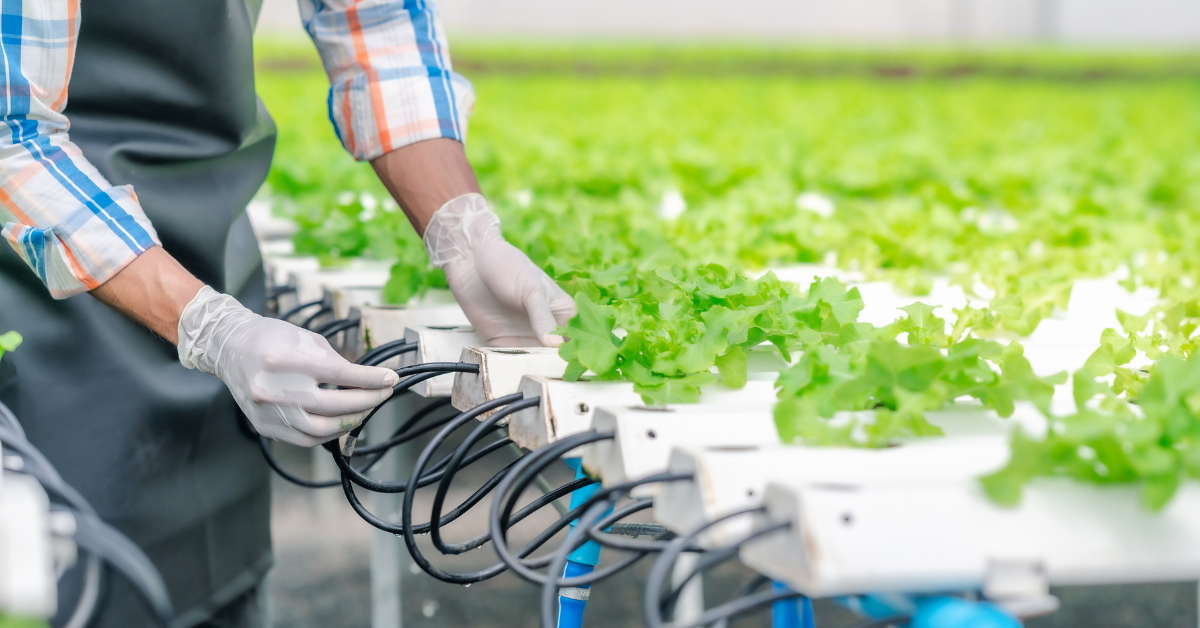












Comments 2